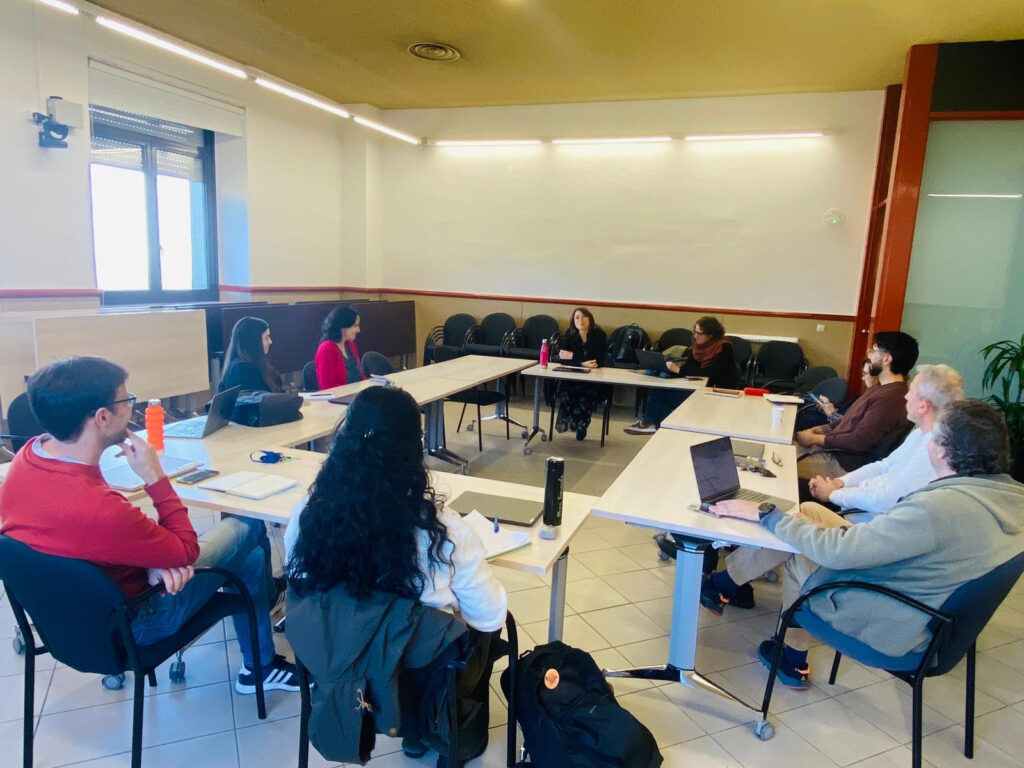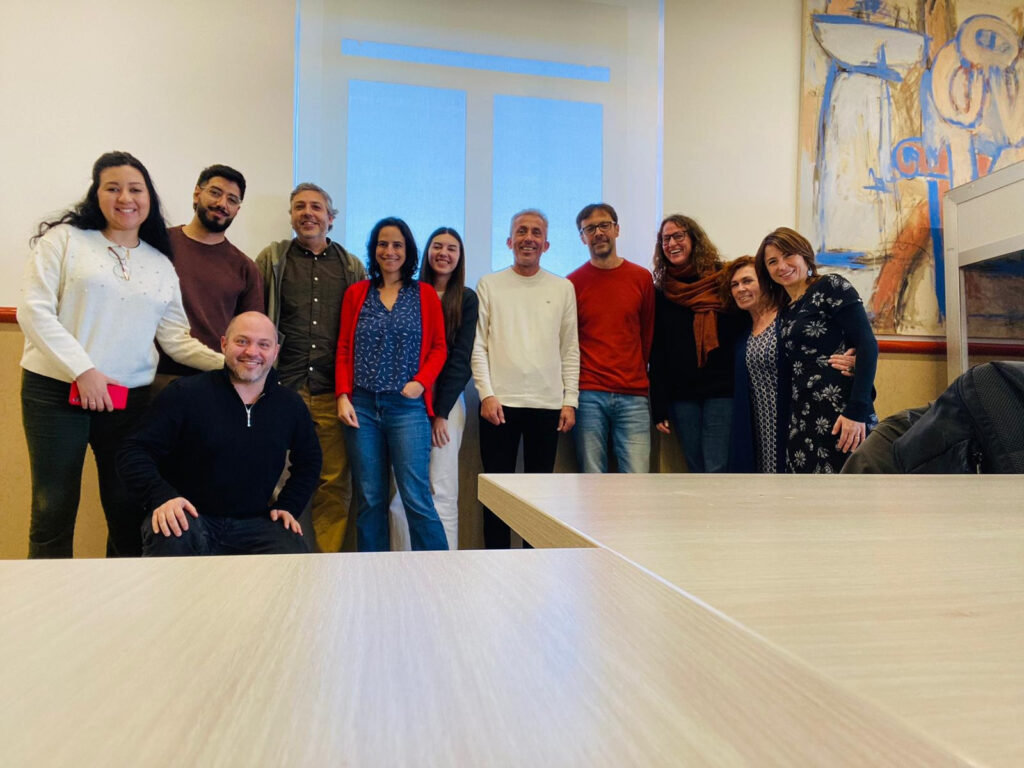Methodological meetings and dissemination at the University of Barcelona
In a corner of time that seemed to resist haste, among steaming cups of coffee and conversations filled with meaningful pauses, a different kind of academy takes shape. It’s a space where research is not just conducted but felt and questioned. A place where the “whys” and “what-fors” become the central axis of a dialogue that transcends generations: senior faculty, junior researchers, and students sharing perspectives and uncertainties about what we mean with ETH-TECH (“Anchoring the Ethics of Post-Digital Technology (AI, Platforms, Datafication).” ….but this means so many things!).
One thing is clear, we don’t want another project that rushes and produce; we want our project to walk slowly, embracing time as an opportunity to think more deeply.
This was the spirit in which I (UNIPD) visited the University of Barcelona, participating in a series of moments within the framework of ETH-TECH.
For moving from an initial shared vision to the project real execution means retracing the relationships and ideas that sparked its origins.
I began by immersing myself in the intellectual energy of the Esbrina Recerca team, where we deepened the discussion about making ethically sustainable choices in an educational context where much is written about the ethics of technology—particularly AI—but little reaches classrooms.
A Nascent Project and the Unsettling Absences
The first meeting was a promising start. Our discussions centered on a crucial yet often overlooked topic: the absence of critical perspectives in teaching educational technology. Drawing from the concept of the “absent structure” (Umberto Eco, non me ne volere…), we explored the void left by ignoring uncomfortable questions and profound reflections on how and why we use technology in education. This absence is well-documented, often filled with hyperbolic technological myths (as we said in this article with Cristóbal Suárez, Pablo Rivera and myself).
The challenge lay not just in pointing out this absence but in understanding its roots and addressing it. Discussions focused on methodologies to capture this gap, considering four cultural contexts: Germany, Spain, Italy, and Romania.
Beyond the Technical: Methodologies and Approaches
In our second meeting, we delved into complex yet fascinating methodological terrain. AI and data in education took center stage, accompanied by post-qualitative and mixed methods approaches. We realized that purely technical investigations are insufficient; we need to transcend “techne” and ask what these innovations mean for people and educational contexts. Post-qualitative research provided a framework for this, critiquing normative research and embracing deconstruction to question the role of researchers, who often come from culturally elitist contexts disconnected from the social realities they study.
The conversation flowed, emphasizing the need to ask deeper, more human questions about education’s role as a social apparatus or dispositif while resisting the allure of technocratic productivity.
Quantitative Yet Critical: The Challenge of Data
Our third meeting took us into the world of numbers and variables, leveraging tools like R and RPubs for open science practices. But our discussion extended beyond the quantitative. We reflected on the semiotics of data—what these numbers represent, conceal, and reveal about educational practices. Can one be a critical researcher while engaging in quantitative work? Why divide the academic world into “numbers lovers” and “numbers haters”?
We critiqued the glamorization of data visualization in high-ranking journals, asking whether this reflects the social sciences’ inferiority complex toward “hard sciences.” Our discussion revolved around how we can use these tools critically, avoiding the temptation to reduce complexity to isolated figures, while embracing the entire debate on uncertainty in measurement, representation, and understanding what mathematical synthesis activates.
Ethics in the Future: Between Dystopias and Utopias
The fourth meeting was special. I had the opportunity to teach to two groups of social education students from UB, exploring how AI envisions the future of teaching. Ethical dystopias like constant surveillance, data commercialization, and predictive patterns were discussed alongside utopias—the driving force that allows us to challenge the narrative of a singular, dominant technological future. This powerful exercise reminded us that even amid uncertainty, there’s space to imagine alternatives.
Here are the slides (Spanish!)
The Pause as Resistance: Reflecting on Platformization and Datafication
The final meeting offered a breath of fresh air amid academic stress. For two hours, we let the words flow, examining concerns about platformization, datafication, and AI’s growing presence in education. It was a moment to question not only the content of our research but also the tools and rhythms that accompany it. In this exercise of resisting the vertigo, we found the space to rethink our practices and dream of more human alternatives..
The Academy We Want


These meetings embodied the academy we envision, and where we wish to place ETH-TECH: a place that values slow time, where questions matter more than answers, and where intergenerational collaboration builds broader, more just perspectives.
This space is not just a refuge from the relentless pace of academic publishing; it’s a declaration of principles. Perhaps these moments of resistance, the seeds planted in each discussion and shared idea, hold the power of a nascent revolution.
This is the academy we want, and we are determined to build it—step by step, with our sights set on a fairer, more human future.And this is a starting point to think about the ethics of our work overall.
Leave a Reply